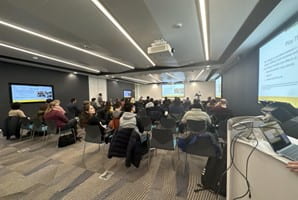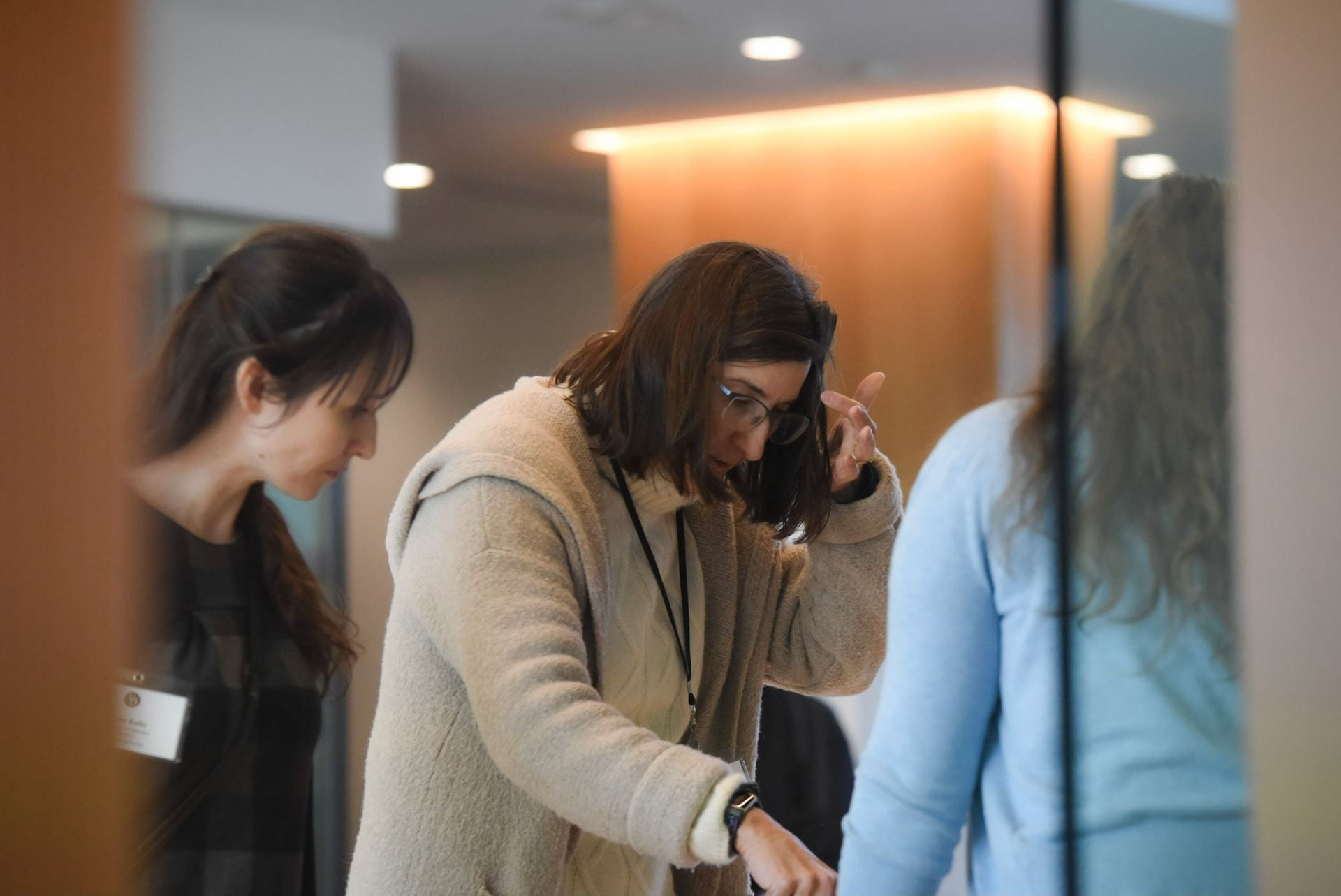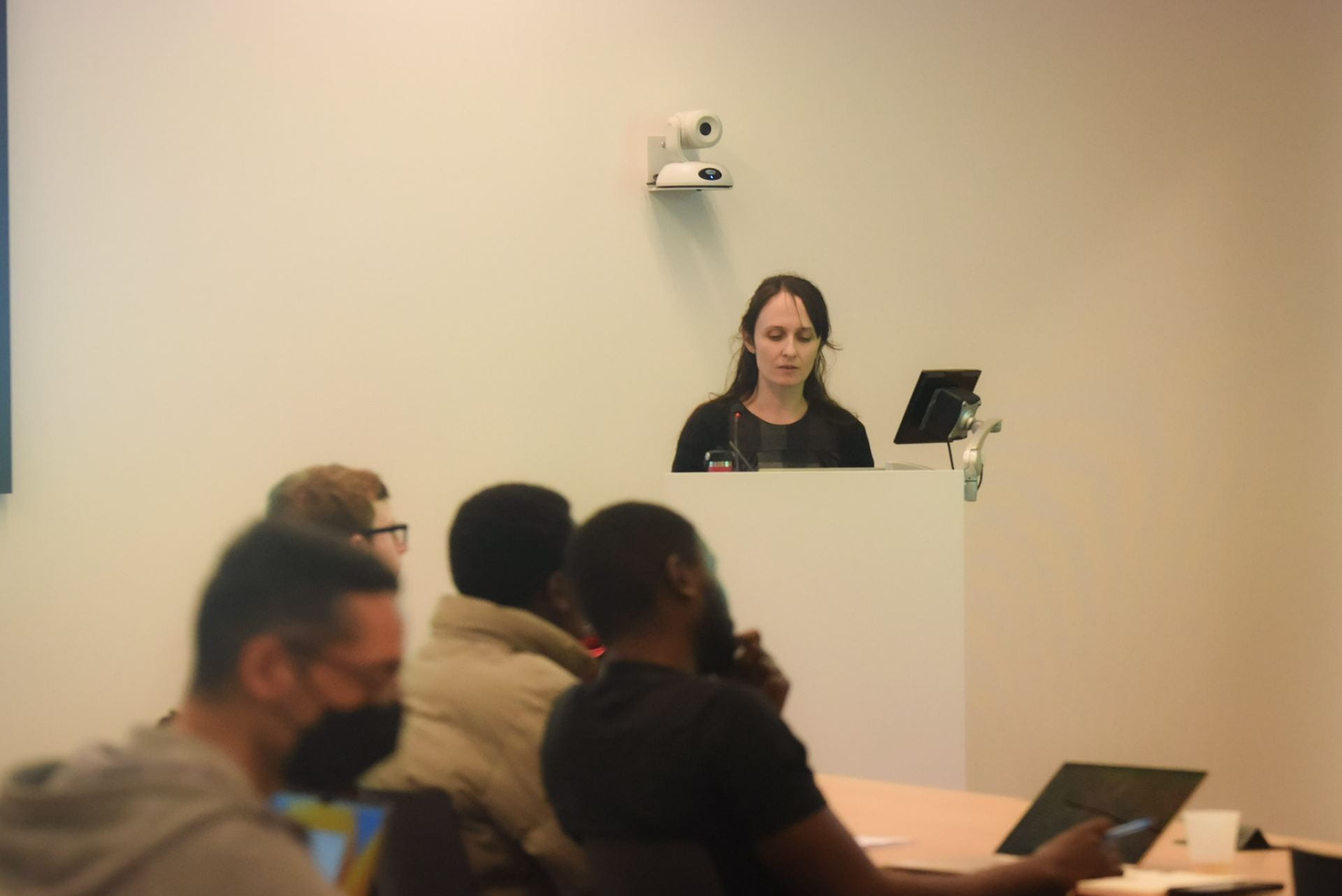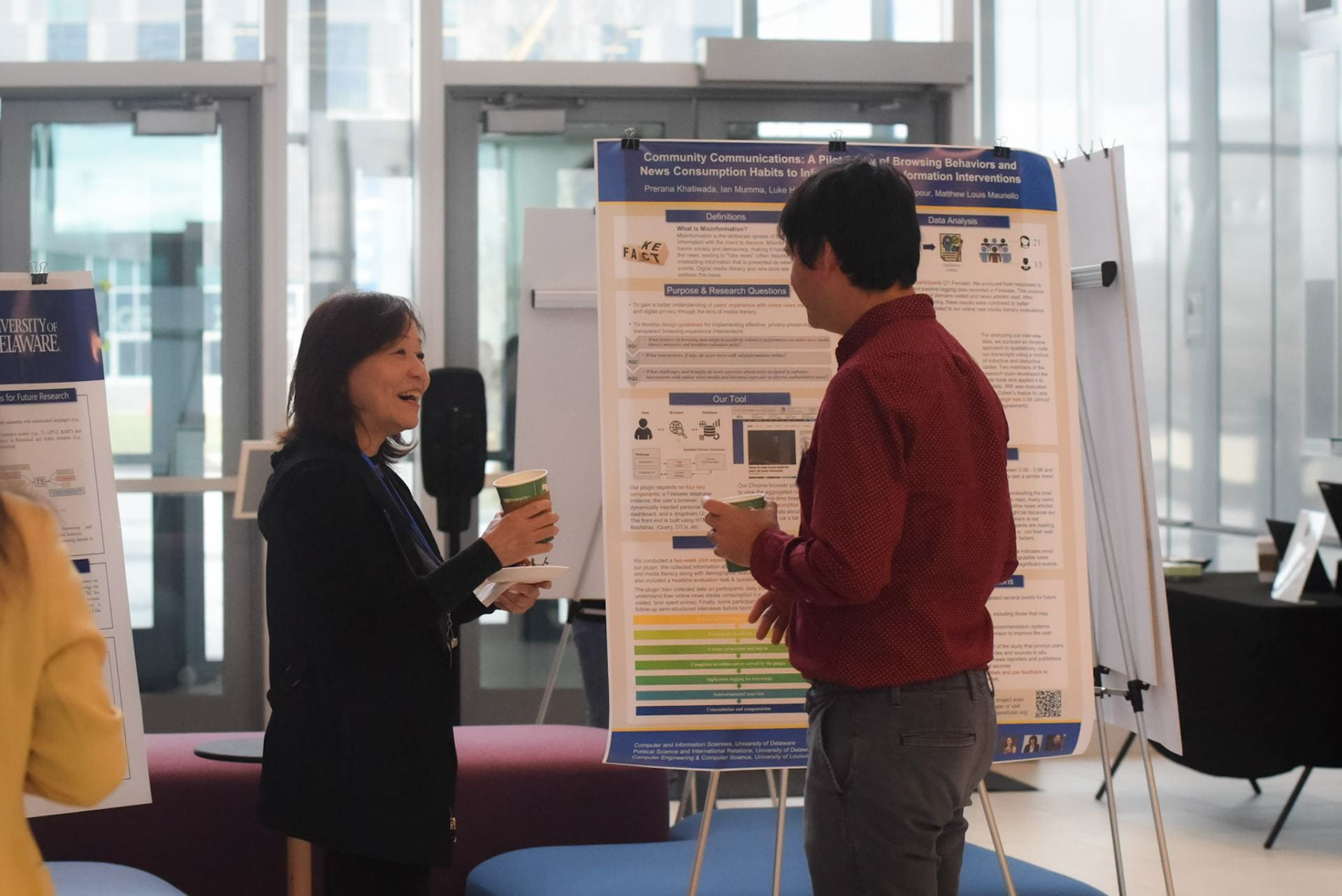UD’s AI Center of Excellence Hosted First Workshop
Article by Sam Smith

The opening session provided an opportunity for the center’s first-round seed funding awardees to give a short overview of their work and utilizations of AI. The speakers represented a variety of disciplines ranging from computer science, to engineering, and even fashion and apparel that have a need for AI solutions. They were:
- Prof. Xi Peng from the Department of Computer & Information Sciences presented ideas to develop ML models to segment and predict ripple fingerprints from large-scale seabed acoustic images.
- Prof. Barmaki from the Department of Computer & Information Sciences shared strategies on transformers for Socioemotional Behavior Assessment of Children with Autism
- Prof. Gonzalo Arce from the Department of Electrical & Computer Engineering and Prof. Rodrigo Vargas from the Department of Plant and Soil sciences presented on ML needs for Compact LiDAR Imaging in Earth Science
- Prof. Fabrizio Sergi from the Department of Biomedical & Mechanical Engineering and Prof. Austin Brockmeier from the Department of Electrical & Computer Engineering discussed strategies to understand how stroke survivors have limitations in walking and how predictive models could be used to address the same
- Prof. Kelly Cobb from the Department of Fashion & Apparel Studies discussed how AI models could be used for textile and pattern recognition


The workshop agenda included a compelling panel on “Building Academic and Industry Collaboration with AICoE,” moderated by Rudolf Eigenmann from the Dept. of Electrical and Computer Engineering.
Some of the intriguing discussions included how AI is increasingly playing a critical role in our daily lives and how consumer needs have been driving advancements in hardware and software technologies in industries. The panelists included:
Priscilla Moraes, Microsoft, Principal Applied Scientist Manager
Jonathan Bentz, NVIDIA, Solutions Architect, Sr. Manager
Ian Ferriera, AMD, Software Engineer
Patrick Callahan, Labware, Director of Analytics
Rita Landgraf, UD Partnership for Healthy Communities, Direct
Priscilla shared her experience with working on ONNX to bridge the gap between hardware and software in AI. Jonathan highlighted the importance of setting a strategy which fits the university’s strengths, has buy-in from university leadership, fosters interdepartmental collaboration, and allows for a flourishing ecosystem of academic, industry, and government partners. Ian shared with the audience the power of some of the recently released AMD GPU cards that have made into the world’s first exascale supercomputer. Patrick shared their experiences on data analytics working with vendors such as Wawa. Rita highlighted the societal needs for AI from a healthcare standpoint. The panelists also reflected on the pros and cons of much talked about AI bot – ChatGPT!




The workshop agenda also provided a bootcamp that focused on exploring Machine Learning workflow using some of the tools including Python3, Scikit Learn, Pandas, and NumPy. The bootcamp was given by instructor Dr. Pinar Kullu, a postdoc researcher of the AI Center of Excellence. It ensured a step-by-step process to the attendees including data cleaning, encoding data, model building, result evaluation, and performance improvement.
The bootcamp material is linked above.
The AICoE would like to thank Eliot Eshelman and Jonathan Bentz of NVIDIA, who hosted a table at the event, where they gave away NVIDIA swags to the attendees and interacted with students and faculty of UD. Members of the UD community who would like to speak with NVIDIA are encouraged to reach out to their representative Eliot Eshelman


NVIDIA’s GTC conference is around the corner! The upcoming GTC conference will feature a conversation with the NSF’s Erwin Gianchandani, Assistant Director, National Science Foundation Directorate for Technology, Innovation, and Partnerships (TIP): AI Education & Access at Scale. GTC registration is free and offers sessions for students and faculty.














